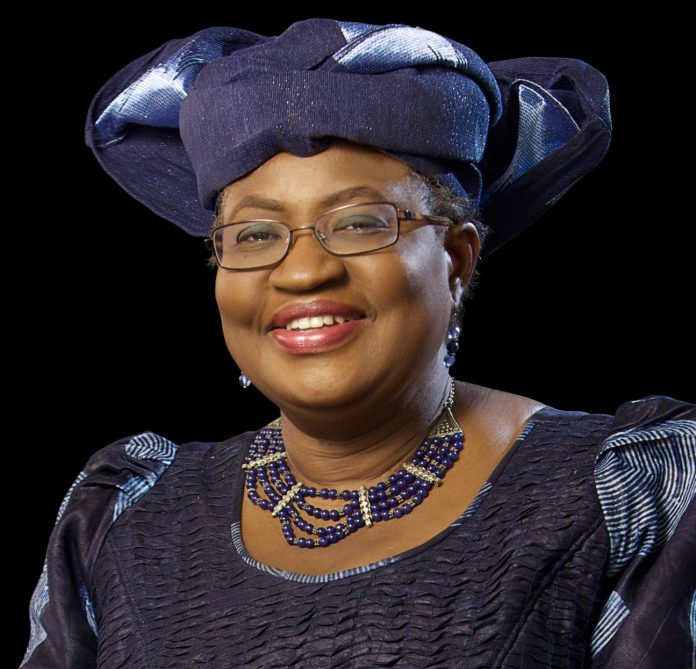So much has been said and written on the individual of Dr (Mrs) Ngozi Okonjo-Iweala. She is one of the most famous ladies in Africa today and there are valid justifications for that. This isn’t only because of her past political arrangements as two-time Minister of Finance and one-time Minister of Foreign Affairs of the largest and most populous black nation on earth, and we cannot equally say this is only because of her record as the Managing Director of the World Bank.
Having followed Dr Okonjo-Iweala’s exercises since 2004 when she was going Nigeria’s Ministry of Finance, I have come to watch she has consistently been striking to take up the hardest of occupations, undertakings and actualize the apparently most troublesome changes – no sweat. I thought it was just me watching this till I was as of late refuted.
Now, let me welcome Mr Gordon Brown into the conversation. For certain reasons, a few of us may not realize Mr Brown. Mr Brown is a British Statesman and well known person who filled in as Prime Minister from 2007 to 2010. Beside this, Mr Brown is a notable companion of Africa (Nigeria particularly). This clarifies why Mr Brown was among the primary arrangement of supports for Dr Okonjo-Iweala for the situation of Director-General of the World Trade Organization (WTO) at some point in July.
The British paper, The Times, catches it appropriately with the strong title text GORDON BROWN BACKS OKONJO-IWEALA TO LEAD WTO. This underwriting implies a ton. To begin with, having filled in as UK Prime Minister at the time Okonjo-Iweala was Nigeria’s Finance Minister, Mr Brown realizes her fitness in actualizing extreme changes and taking care of complex turn of events and planning difficulties in a special situation like Nigeria. As I said before, Mr Brown is anything but an alien to Africa’s dinky socio-world of politics and the stuff to execute changes in finance and benefits the board.
Quoting The Times, the former Prime Minister said that Okonjo-Iweala would make an “outstanding success” of running the Geneva-based organization which is currently facing some fundamental crises and in search of its soul. Gordon Brown surely knows too well that the choice of the next DG of the organization is very crucial as the world grapples with the global economic disruption caused by Covid-19.
Secondly, Brown’s backing of Okoko-Iweala is altruistic. By endorsing Okonjo-Iweala, Brown allowed himself to be guided by the spirit of competence rather than nationalistic milieu and innuendos. He is well aware that Mr Liam Fox, his compatriot who previously served as UK Secretary of Trade is in the race with Okonjo-Iweala. Even at that, Mr Brown does not seem rightly persuaded by ultra-nationalist arguments before endorsing the amazon from Nigeria.
According to Brown, Okonjo-Iweala is well-respected “across the whole of the world”.
I understand some people may want to bring in British party politics into this matter at this point. “Oh, Gordon Brown won’t endorse Liam Fox because of his Labour affiliation” or similar arguments. This, to be honest, is either ridiculous or petty.
As bitter as Nigerian politics can be, politicians of all orientations have endorsed Okonjo-Iweala. Even though she served under the government of the opposition party, the current government still went ahead to nominate and support her for the position. The reason for this is straightforward: she is perceived as competent irrespective of her political orientations or affiliations. If competence is what is required, then Okonjo-Iweala is the one the cap fits.
Earlier in July, Mr Patrick Lumumba, a Kenyan lawyer and global anti-corruption crusader, bypassed his fellow Kenyan, Amina Muhammed, to endorse Okonjo-Iweala.
In Lumumba’s own words, he said: “Right now …Okonjo-Iweala is the candidate we should back, given her credentials.” (Italics mine). Notice, Lumumba never bothered about Okonjo-Iweala’s country of origin. He is also not moved about the argument that his own country has a candidate for the same position Ngozi is running for. What he bothers about is who is most qualified for the job. All other things are details.
This leads me to Mr Brown’s striking evaluation of Okonjo-Iweala: she handles the toughest of jobs. Dr Okojo-Iweala has become adept at handling and delivering on seemingly complicated tasks and implementing life-threatening institutional reforms in fast-paced settings.
She has mastered the art of making seemingly difficult problems look simple with the ways she handles them. Nobody ever thought it was possible to build a centralized database for payroll for public sector workers in Nigeria until Okonjo-Iweala came. Nobody thought it was going to be easy negotiating debt relief for Nigerian until Okonjo-Iweala made it possible in 2005.
Many Nigerians now take the benefits of Banking Reforms for granted but do not know it started while Okonjo-Iweala was Finance Minister. The current pension system in operation in Nigeria today came through the table of Madam Okonjo-Iweala. What about the use of technology to fight corruption in the public sector? Many people seem to forget that existing initiatives like the Treasury Single Account (TSA) and Integrated Personnel Payroll Identification System (IPPIS) which have saved the Nigerian government huge sums of dollars are the initiatives of Dr Okonjo-Iweala.






